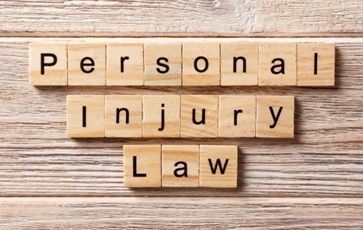4 Defenses You Might Face in Your Medical Malpractice Case
Medical malpractice claims tend to attract high values. As such, defendants of such cases often mount spirited defenses. Below are four defenses your case might attract.
1. Acceptable Risk and Informed Consent
Most medical procedures have some level of risk. Medical doctors analyze patients, treatments, and possible risks to determine whether to proceed with a procedure or not. Over the years, the medical industry has accepted some standard operating procedures and risk analysis that determine when to perform a procedure or not.
For example, chemotherapy has multiple side effects, including:
- Diarrhea
- Oral sores
- Pain
- Fatigue
When used as a cancer treatment, however, the benefits of chemotherapy outweigh the risks. Thus, if you get chemotherapy treatment and develop headaches, the responsible medical provider might argue that the headache is an acceptable risk of the treatment. Such a claim might hold water if you provided the medical provider with your informed consent before the treatment.
In this case, your best way forward is to disapprove what constitutes an acceptable risk of the defendant's claim of informed consent. For example, you might succeed with evidence or testimony that proves your headache's severity and duration exceed the acceptable risk standards.
2. Wrong Defendant
Most medical treatments involve multidisciplinary teams. For example, a surgical procedure may involve a surgeon, anesthesiologist, and operating room nurse, among other medical professionals. Each of these professionals has a specific role during the procedure. The anesthesiologist administers anesthesia and monitors your vitals during the procedure.
In case of medical malpractice, the at-fault person shoulders the liability. Liability assignation means a defendant can argue that they aren't liable for your injuries. One example of this is when an anesthesiologist might blame other members of the surgical team.
One way to deal with this complication is to have your lawyer and an expert witness scrutinize the case and help you identify the right defendants. Another way is to include everyone associated with your treatment in your medical malpractice claim.
3. Inevitable Outcome
You don't have a medical malpractice case just because your condition failed to improve or worsened after treatment. You only have a case if the defendant's actions prevented your recovery or worsened your condition. Medical providers know this fact and can use it as a defense when facing medical malpractice claims.
Consider an example where a doctor misdiagnoses your medical condition in your first consultation. The doctor gets the diagnosis right during a subsequent consultation, but the prescribed consultation doesn't help. The doctor might argue that your condition has been serious for a long time that even the right diagnosis at the first consultation couldn't have helped.
Such cases can be complicated without expert analysis and testimony. You need someone who can evaluate your medical history to help you disapprove of the doctor's claim. You may need to prove how a procedure or treatment could have helped you if you hadn't suffered the delayed diagnosis. Exercised lawyers have doctors that they consult and use for such cases.
4. Comparative Fault
Lastly, the defendant can also argue that you contributed to your injuries. For example, the medical provider can claim that you didn't take your medication as prescribed. Such a claim, even if it succeeds, is not a complete fault. Rather, defendants who use it want to minimize your compensation. The reduction is possible under Indiana's modified comparative negligence laws.
Your best course of action is to prove that you followed the doctor's instructions to the letter. Eyewitnesses, medical records, and even expert witnesses can help you with the necessary proof.
Medical malpractice cases, even those that don't fall within the above categories, can be complicated. Ideally, you should use experienced lawyers for all your medical malpractice cases.
Contact
the Law Offices of Janice Maloney and let our decades of experience and skill help you win your damages.




